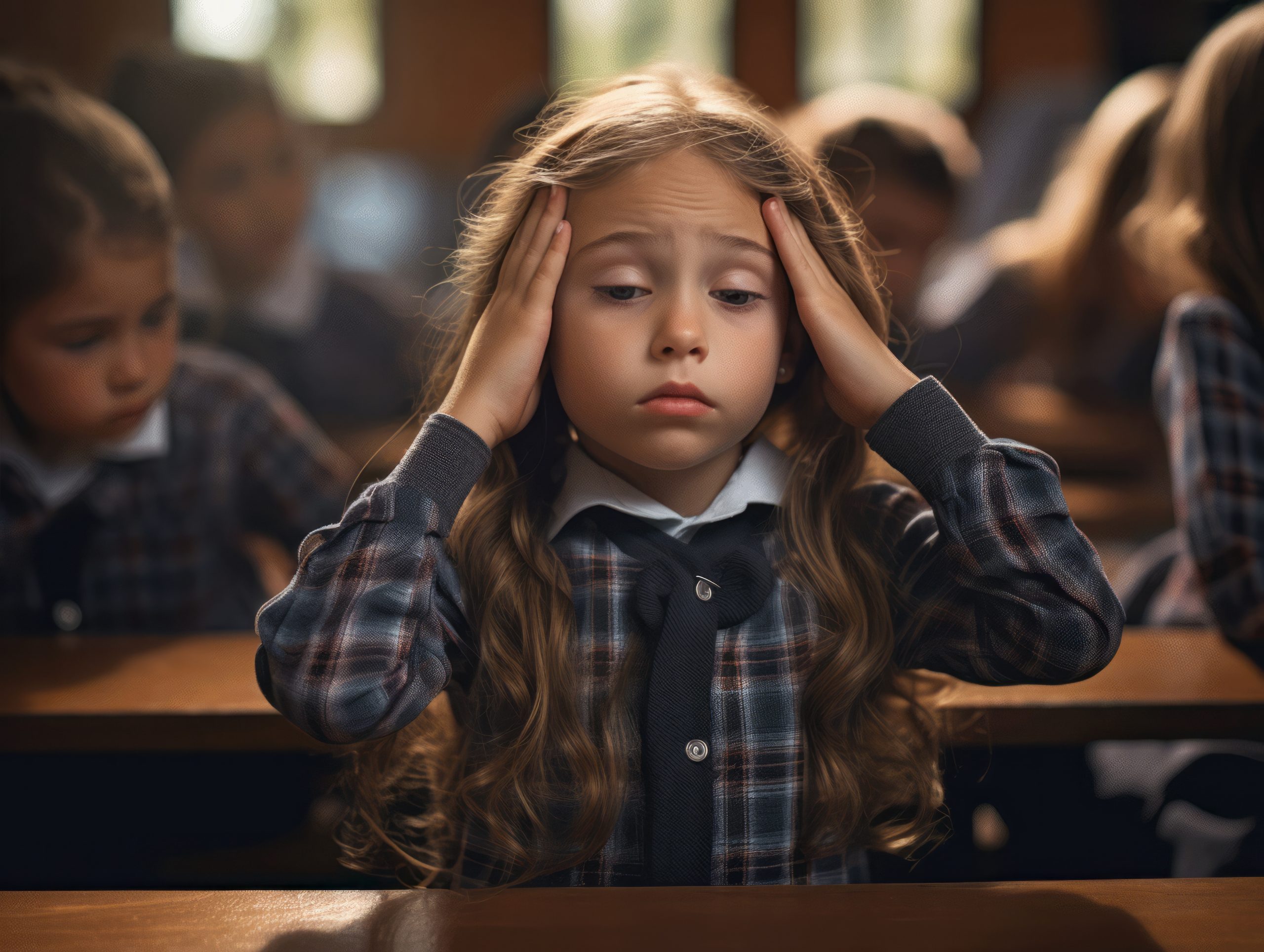Introduction
When a child utters the words “I hate school,” it can strike a chord of panic in any parent. Whether it’s said tearfully at breakfast, shouted in frustration during homework, or muttered daily with growing indifference, the sentiment is deeply unsettling. Parents may feel confused, helpless, or even defensive—especially if school was once a positive part of their own childhood.
But a child’s aversion to school is rarely simple. It’s not just about not liking math or disliking a teacher—it often reflects deeper challenges such as anxiety, social stress, learning differences, or emotional distress. Instead of trying to “fix” the problem overnight or dismiss the complaint as a phase, the most constructive approach is to get curious, validate your child’s experience, and work collaboratively toward solutions.
This paper explores the root causes of school hatred, how to identify underlying problems, and most importantly, what parents can do to help their children feel safe, supported, and eventually reconnected with learning.
Why Do Kids Say They Hate School?
“Hate” is a strong word, but children often use it to express a wide range of discomforts. Understanding the specific reasons behind the statement is key to finding the right solution.
- Academic Struggles
Children who struggle to keep up academically—whether due to undiagnosed learning differences, gaps in foundational knowledge, or poor teaching fit—may feel embarrassed, frustrated, or defeated.
They may think:
- “I’m stupid.”
- “Everyone else gets it, but I don’t.”
- “No matter how hard I try, I still fail.”
Over time, these internal beliefs lead to avoidance or rejection of school altogether.
- Social or Peer Problems
Bullying, friendship drama, or feeling socially excluded can make school feel like a hostile environment. Even if academics are fine, the emotional toll of negative social interactions can create deep resistance.
Watch for signs like:
- Avoiding recess or lunch
- Nervousness before school
- Isolation at home
- Anxiety or Sensory Sensitivities
Children with generalized anxiety or conditions like autism or ADHD may find school overwhelming due to sensory overload, rigid expectations, or unpredictable routines.
An anxious child may “hate” school because:
- Transitions are stressful
- They fear failure or embarrassment
- They don’t feel emotionally safe in the environment
- Lack of Connection or Relevance
Some children disengage because school feels boring or meaningless. Especially among creative or non-traditional learners, the structure of school may feel stifling.
They may ask:
- “Why does this matter?”
- “Why can’t I learn at my own pace?”
- “Why does no one care what I’m interested in?”
This can lead to apathy, rebellion, or refusal to engage.
First Steps: What Parents Should and Shouldn’t Do
- Don’t Dismiss or Minimize
Avoid saying:
- “You just have to go. Everyone does.”
- “Suck it up—it’s part of life.”
While these may be true from an adult perspective, they can make a child feel unseen and unsupported.
- Stay Calm and Curious
Respond with:
- “Tell me what you mean when you say you hate school.”
- “What part is the hardest for you?”
- “What would make it easier?”
Open-ended, nonjudgmental questions encourage reflection and communication.
- Observe Patterns
Keep a simple log of:
- When the complaints occur (before school, after, certain subjects)
- Physical symptoms (headaches, stomachaches)
- Behavioral patterns (meltdowns, shutdowns, resistance)
This helps you gather clues without relying on memory or emotion.
Rebuilding Trust and Safety
Once you’ve identified possible causes, the goal isn’t to push harder—it’s to re-establish a sense of trust and emotional safety around school.
- Collaborate With Teachers
Set up a non-defensive meeting with your child’s teacher. Ask:
- What do you see during the day?
- How is my child engaging with peers?
- Are they asking for help when needed?
- Do they seem anxious, distracted, or withdrawn?
Share your observations and ask for their input. Teachers can often adjust support, reduce pressure, or recommend further evaluation if needed.
- Explore Accommodations
If academic or emotional challenges are present, your child may qualify for accommodations (e.g., extended time, quiet workspaces, social support groups). If symptoms are severe, request a formal evaluation through the school’s support team.
- Create Predictability and Downtime at Home
Children who find school emotionally exhausting need calm, safe home environments to decompress. Establish:
- Predictable after-school routines
- Protected downtime (no immediate homework)
- Bedtime routines that reduce anxiety
Focus on connection before correction. Save academic conversations for calm moments.
Reframing School and Learning
Sometimes, changing how your child views school can reduce resistance and reignite engagement.
- Separate “School” From “Learning”
Say:
- “Learning doesn’t only happen in school. Let’s talk about what excites you.”
- “School is one way to learn—but not the only way.”
Validate their frustration without undermining education itself.
- Connect School to Their Interests
Help them see how what they’re learning connects to their real-world passions. If they love animals but hate reading, try:
- Animal documentaries
- Nonfiction books about wildlife
- Science projects on ecosystems
Even if schoolwork feels irrelevant, learning can be made meaningful at home.
Helping With School Refusal or Chronic Resistance
If your child is refusing to go to school or melting down regularly, more targeted interventions may be needed.
- Use Gentle Exposure Techniques
Rather than pushing full attendance immediately, consider:
- Partial days or delayed starts
- Staying for one class, then gradually increasing
- “Drive-bys” to school to reduce anticipatory anxiety
Work with school counselors or psychologists to develop a plan.
- Create Coping Strategies
Teach your child to manage stress with tools like:
- Deep breathing or grounding exercises
- Visual schedules
- Supportive affirmations (e.g., “I can feel nervous and still go to school.”)
Build a “toolbox” they can draw from during rough moments.
- Consider Therapeutic Support
A child therapist can help identify emotional triggers, build emotional regulation skills, and support your child in managing school-related distress. Therapy can also help parents respond with clarity and confidence.
When to Consider Alternatives
In rare cases, traditional school may not be a good fit. If your child’s mental health is deteriorating despite all interventions, explore:
- Homeschooling or hybrid models
- Online schooling with therapeutic support
- Project-based or alternative education programs
This doesn’t mean giving up—it means finding the right environment for your child’s well-being and growth.
Conclusion
When a child says “I hate school,” it’s more than just words—it’s a signal that something isn’t working. Whether it’s rooted in emotional distress, learning difficulties, or social struggles, the solution lies not in dismissal or discipline, but in deep listening and compassionate action.
Your child doesn’t need you to fix everything overnight. They need to know you’re on their side, advocating for their emotional safety while helping them build resilience and agency. With patience, curiosity, and the right support, school can become less of a battleground—and more of a place where your child feels seen, capable, and ready to grow.







